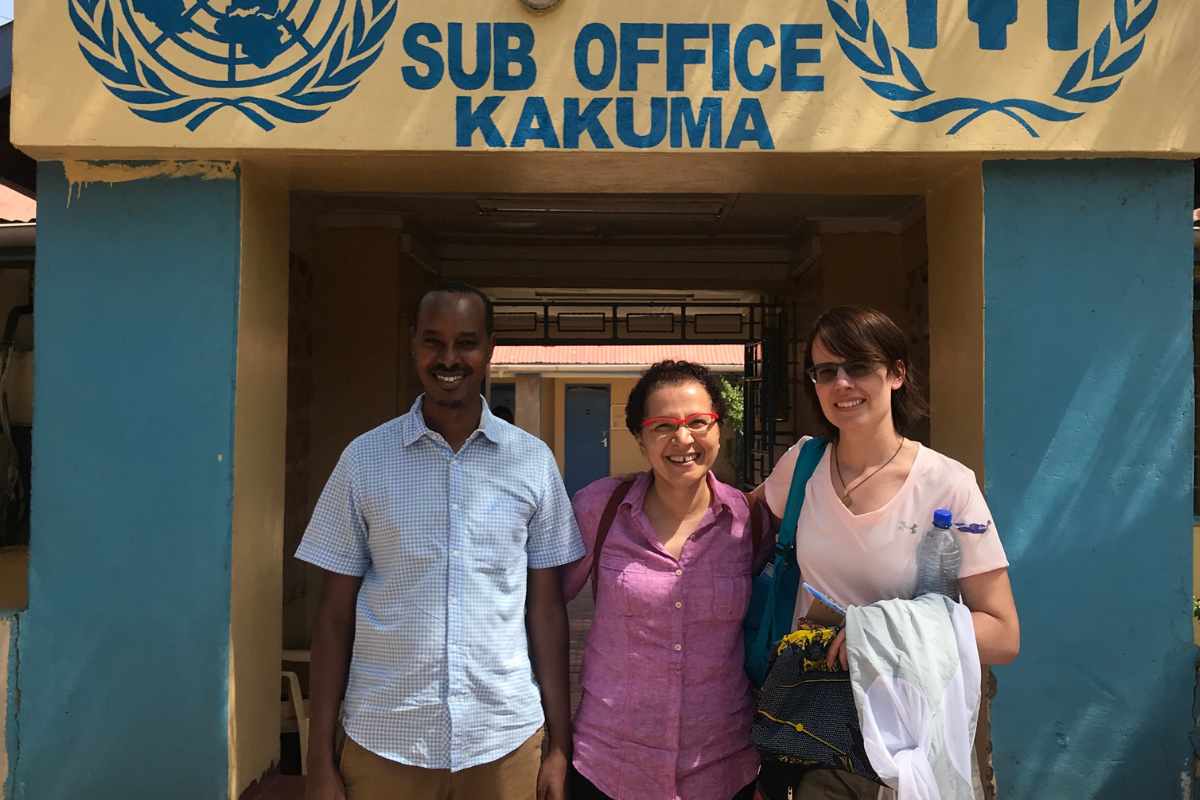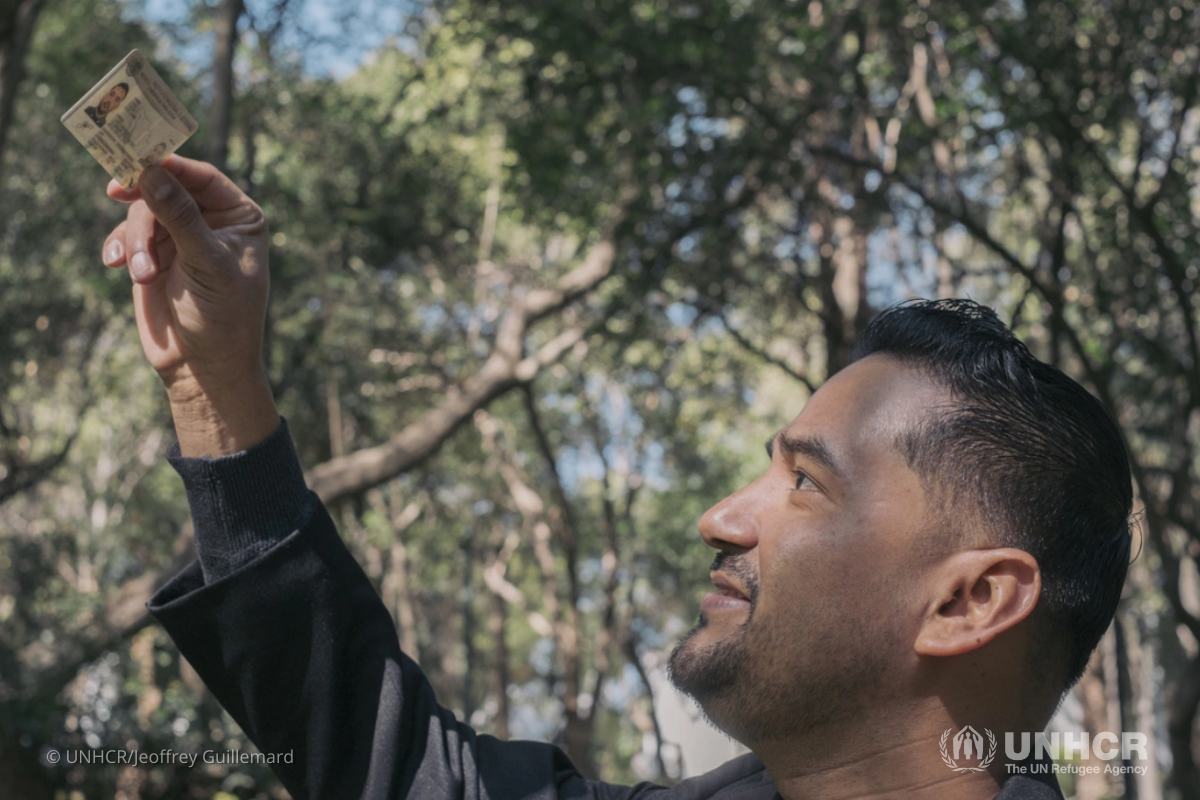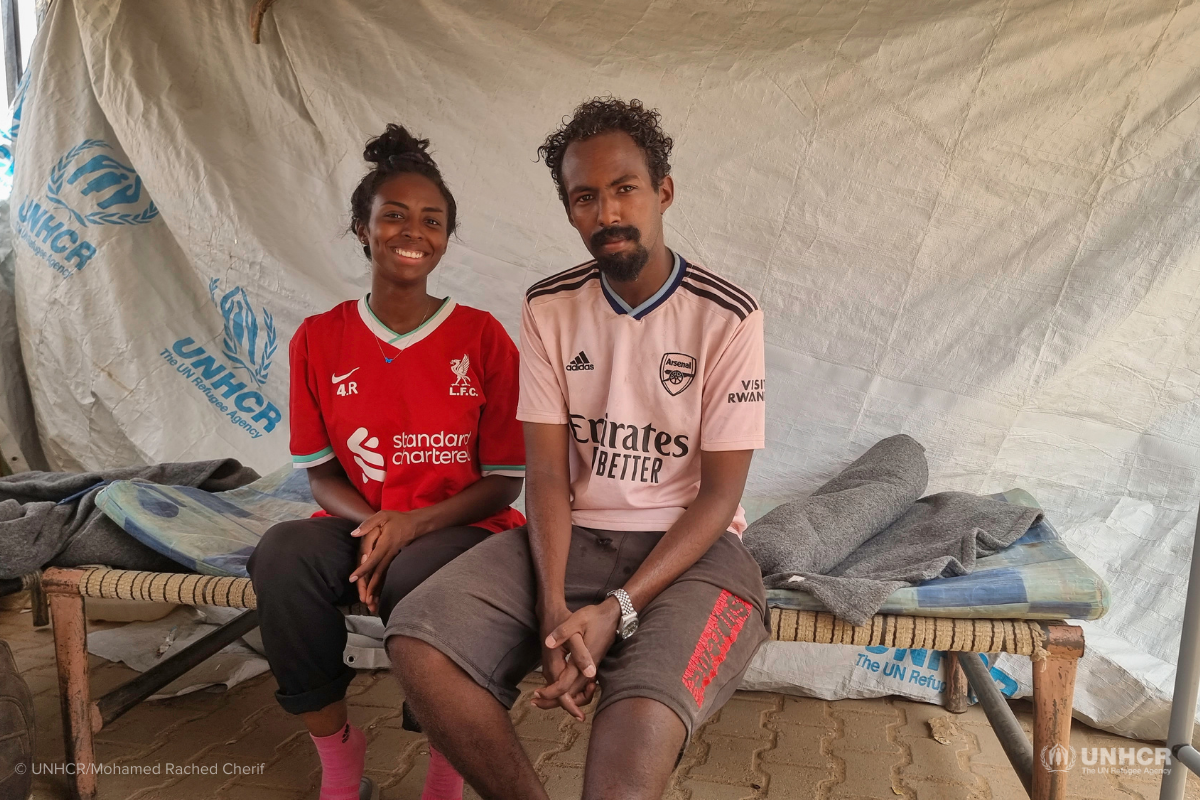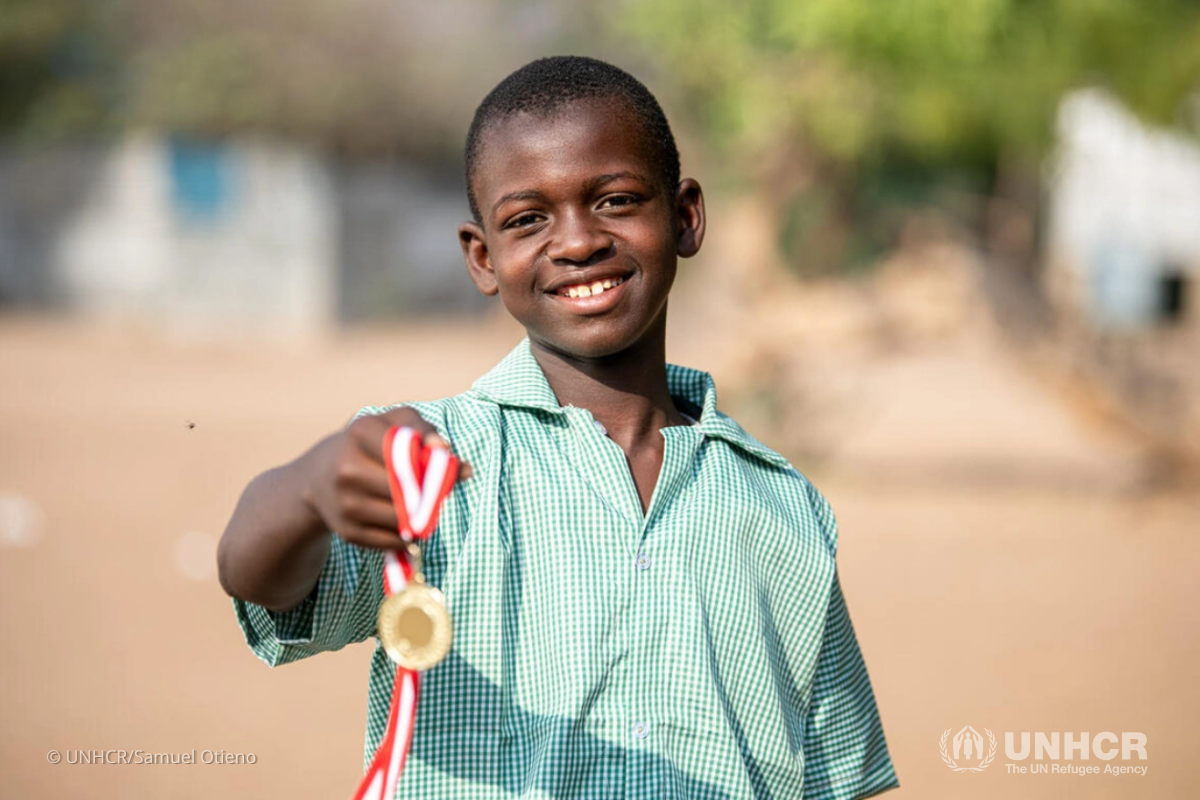Mission report from Kenya’s Kakuma refugee camp

This April, Molly Fyvie, CEO and co-owner of Topaz Agriculture, Inc. and long-time USA for UNHCR supporter, joined a mission trip to Kenya where she traveled from her home near Grand Rapids, Michigan, to Kakuma refugee camp to learn more about UNHCR’s work to help refugees.
What did you expect going into this trip? And what did you end up getting out of it?
I got way more than I expected. I did not expect to meet so many people involved in UNHCR and learn so much about what they’re doing. I’m very impressed with the work of UNHCR.
I guess I expected to walk away with almost a feeling of sadness after seeing a camp firsthand. Instead, I walked away feeling inspired by both UNHCR's strategic approaches and the refugees’ creative adaptability and resilience.
You volunteer at a Refugee Education Center in Grand Rapids. What have you learned from that experience?
Resettled refugees don’t want to lose their identity. They want to share their culture. They want to—and have to—learn about America, but they also want to be able to share… because their predicament wasn’t really a choice. Many of them say, “We didn’t choose. We didn’t really want to leave. We didn’t want to take this path, but because of the circumstances we had to.”
What similarities do you see between the people at the Refugee Education Center in Grand Rapids and the people you met in Kakuma?
The resilience. When I’m volunteering at the center I am just amazed by—the same feeling I got here—that they want to learn. They want to fit in. They want to work. They absolutely want to contribute.
Was there anything that surprised you about the people in Kakuma?
I had no idea about the educational possibilities available and being developed for the youth at the camp. Some students at Kakuma are earning college degrees and scholarships! I’m surprised my jaw didn’t drop in the meeting where I first learned (from the students themselves) about their talents, degrees and hopes.
What message do you want to bring back to Americans about Kenya or the refugees living there?
They need a shared voice. And I feel that’s one thing we can all help with. But it has to be their voice; I believe that’s very important. One youth leader at Kakuma shared this and it has stuck with me: “Don’t work for us, work with us.” I think we need to continue to provide opportunities for them to share their stories.
How can organizations like USA for UNHCR communicate about refugees in a way that breaks through to Americans?
We can talk about refugees as people who have choice and agency in addition to their suffering. I think people have been desensitized because they see so many images of suffering. An updated narrative highlighting how the protection and education strategies of UNHCR and their partner organizations are making it possible for refugees (like the youth at Kakuma) to envision a life beyond just a daily struggle to possibly attending college—I believe that may resonate with the younger generation. They are paying attention and you can tell they want to help, but they’re not sure how. So I think open doors and shared opportunity is something, that especially young Americans, can relate to.


